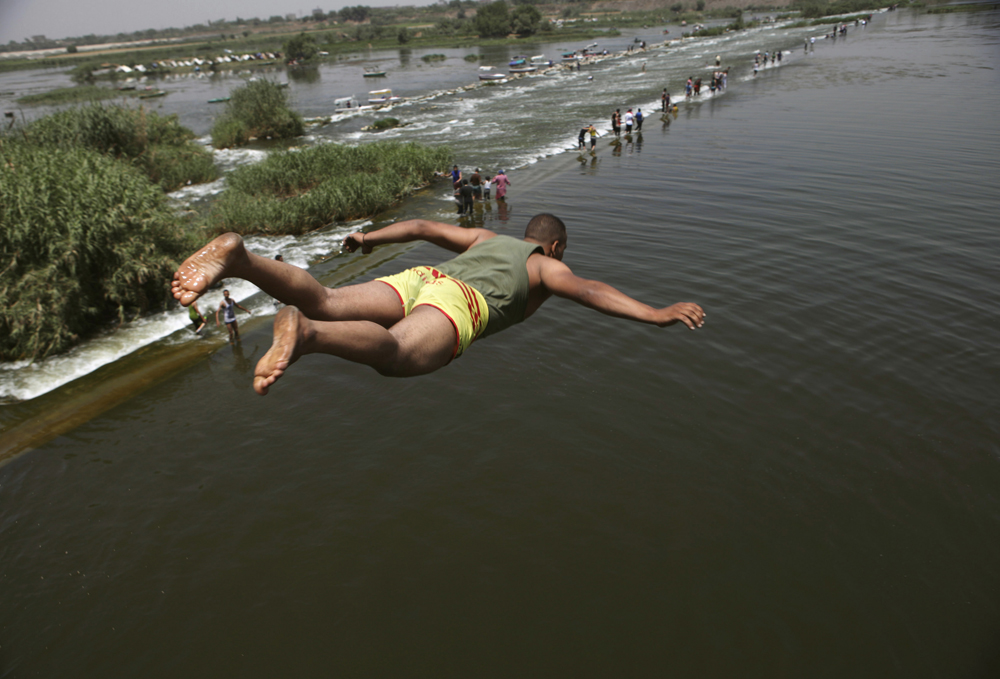-
- MARK BYRNESEthiopia is currently building Africa’s largest hydroelectric power plant. When it opens next year, the “Great Renaissance Dam” will tap into the Nile River. Unsurprisingly, Egypt, a country whose identity and way of life are tied to that body of water, feels threatened by its neighbor’s ambitions.
The new dam will help provide electricity to a country where more than 80 percent live without it. But in Egypt, most of its population is centered near the Nile valley and delta. The former chairman of the National Water Research Center tells Time that the dam will reduce water flow anywhere from 1,300 billion gallons to 6,600 billion gallons per year. It will also increase river pollution, harming fisheries and making it difficult for boats to navigate the river. As Egypt’s foreign minister Mohamed Kamel Amr said recently, “no Nile, no Egypt.”
Tensions between the two nations over the dam project have been palpable. Egypt president, Mohammed Morsi said in a speech on June 10, “we will defend each drop of the Nile with our blood.” During a televised cabinet meeting the week before, several members told the president that “he must destroy the dam through any means available.” Ethiopian prime minister, Hailemariam Desalegn however said recently that “nothing and no one” will stop construction of the dam.
Politics aside, the Nile does play a defining role in everyday life for Egyptians, whether they be farmers or floating restaurant owners. Below, via Reuters photographer Asmaa Waguih, we get a glimpse of the wide ranging ways Egyptians use their treasured river:
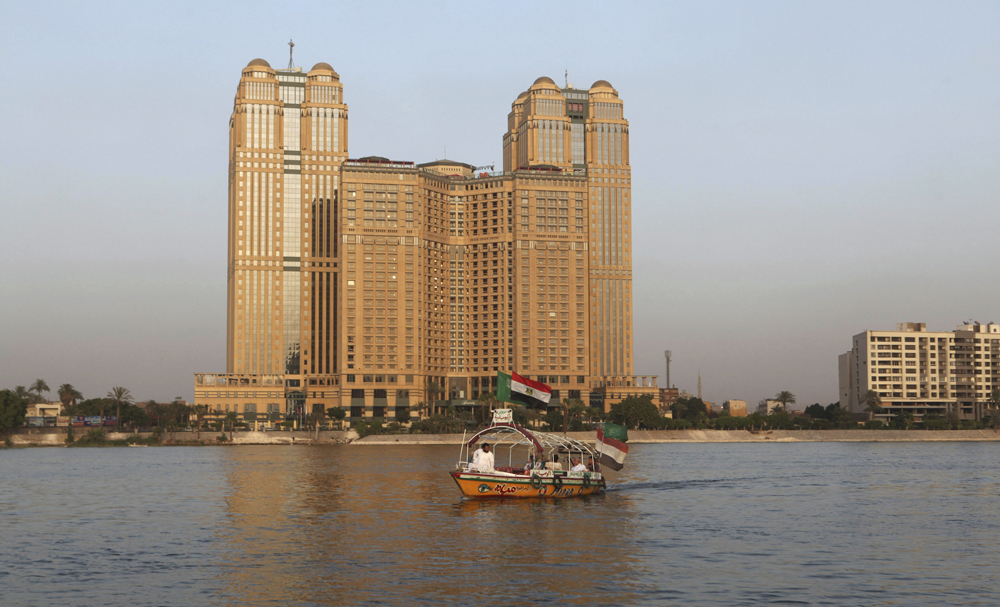
A small cruise boat passes Nile City Towers, which is owned by Naguib Sawiris the owner of Orascom Telecom, overlooking the river Nile in Cairo June 7, 2013. (REUTERS/Asmaa Waguih)
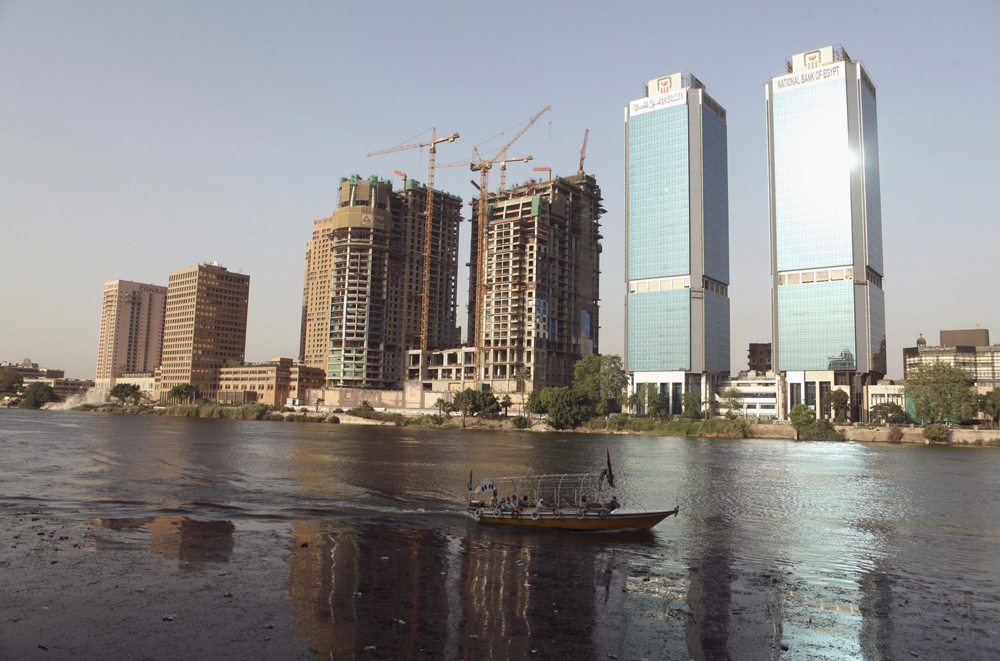
A boat passes buildings under construction and the two towers of the Bank of Egypt building (R), overlooking the river Nile in Cairo June 7, 2013. (REUTERS/Asmaa Waguih)
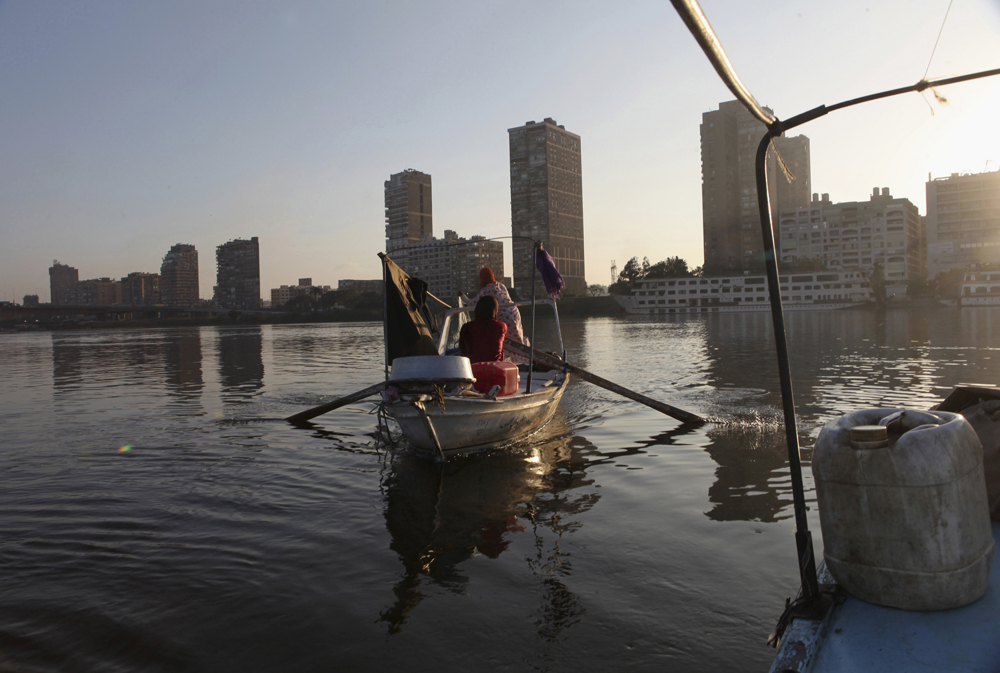
A woman rows, while another holds a net as they fish in the river Nile in Cairo April 16, 2013. (REUTERS/Asmaa Waguih)
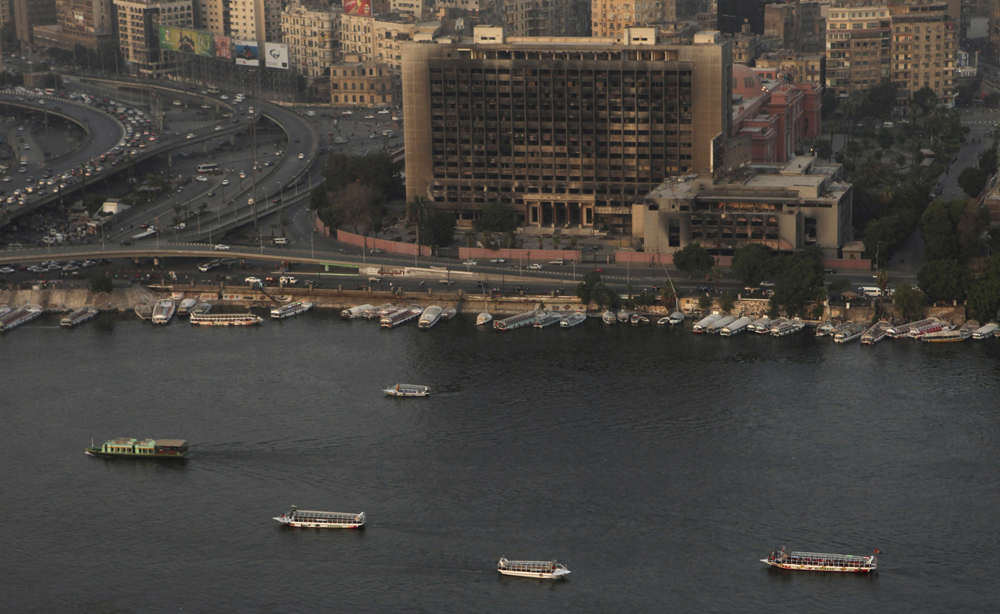
Boats sail past the burned out headquarters of former President Hosni Mubarak’s National Democratic Party, on the banks of the Nile in Cairo June 12, 2013. (REUTERS/Asmaa Waguih)
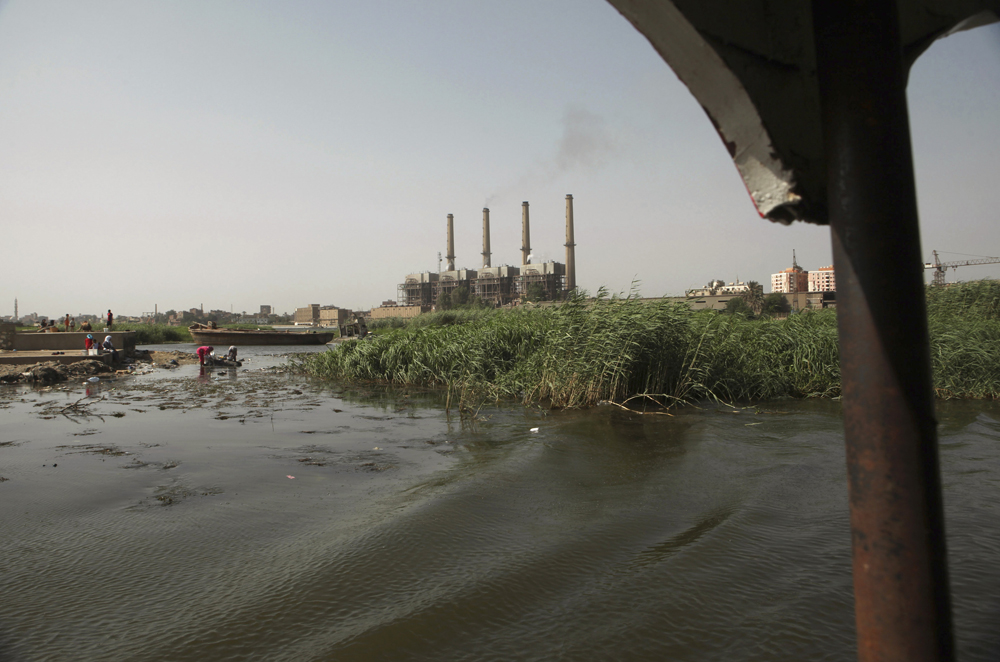
Women wash clothes in the river Nile in Cairo May 20, 2013. (REUTERS/Asmaa Waguih)
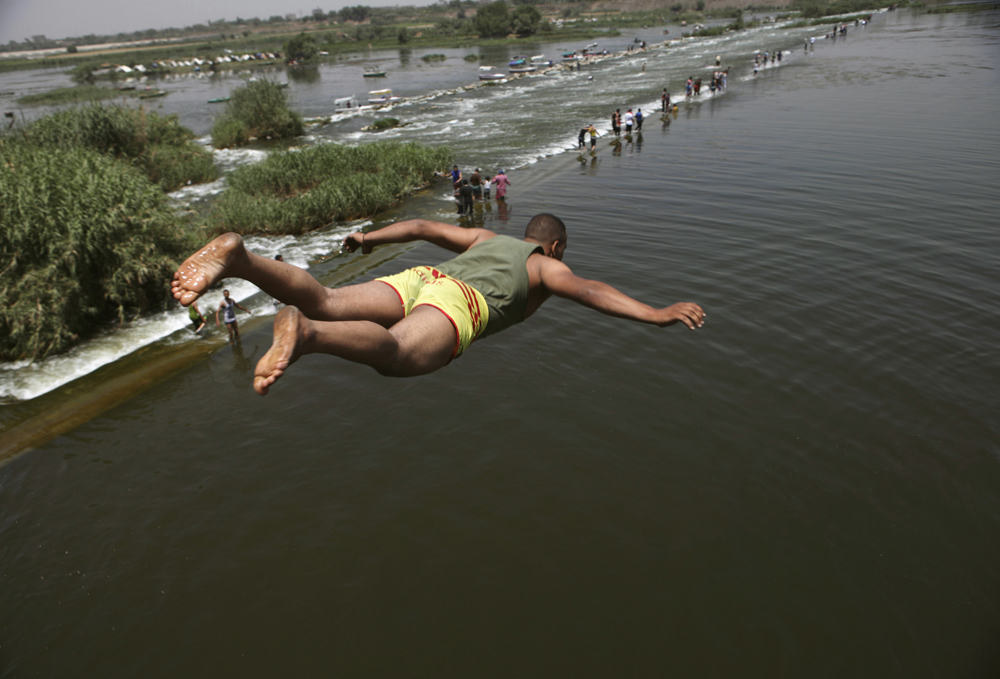
A boy jumps into the river Nile as people celebrate the spring holiday of Sham el-Nessim on the outskirts of Cairo May 6, 2013. (REUTERS/Asmaa Waguih)
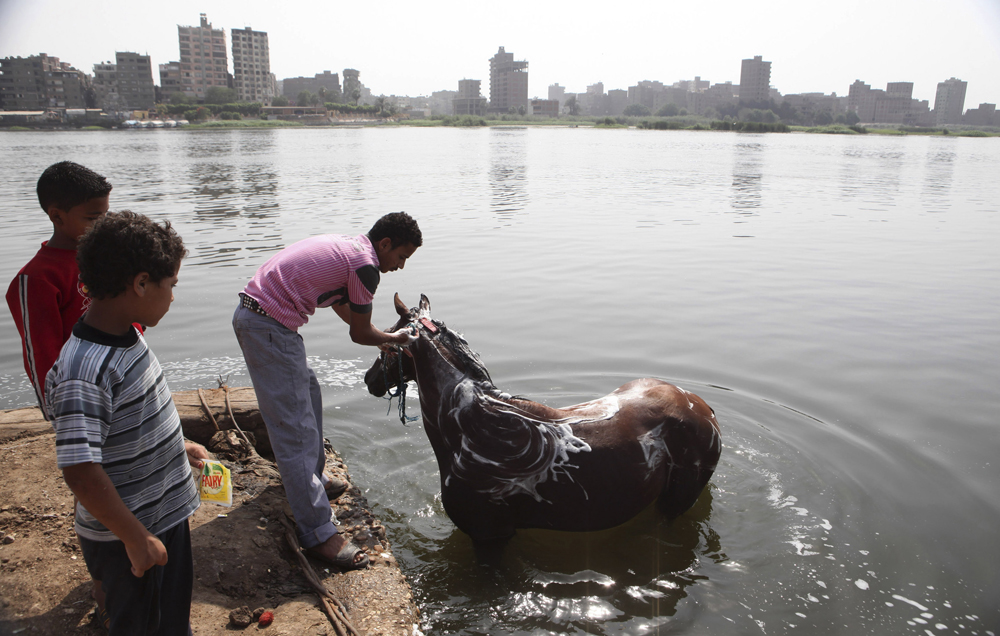
A boy washes his horse in the river Nile in Cairo May 22, 2013. (REUTERS/Asmaa Waguih)
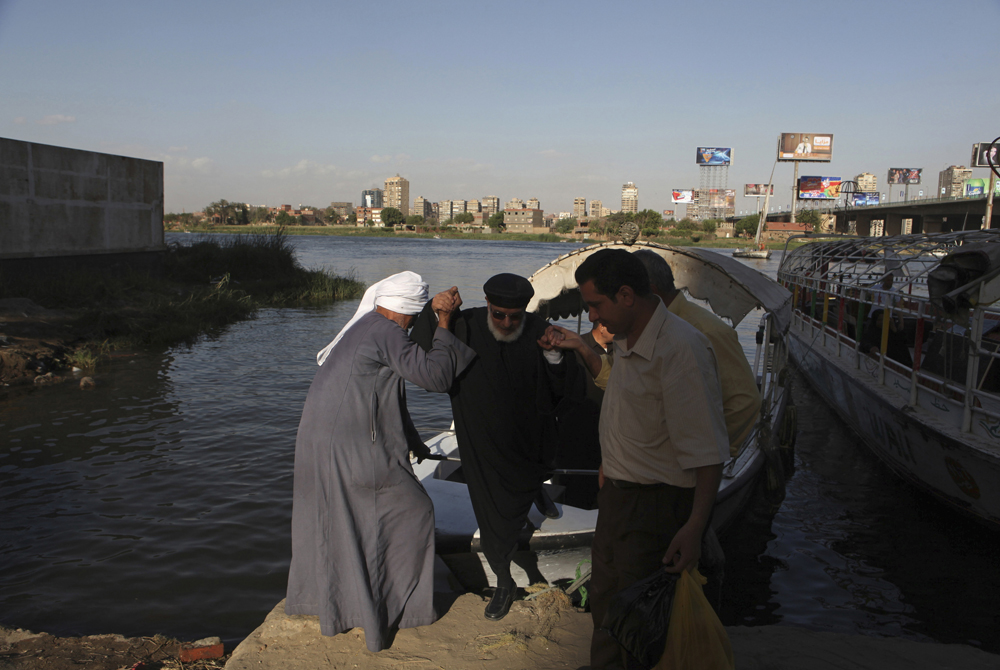
Men help a priest disembark from a river taxi on the river Nile April 5, 2013. (REUTERS/Asmaa Waguih)
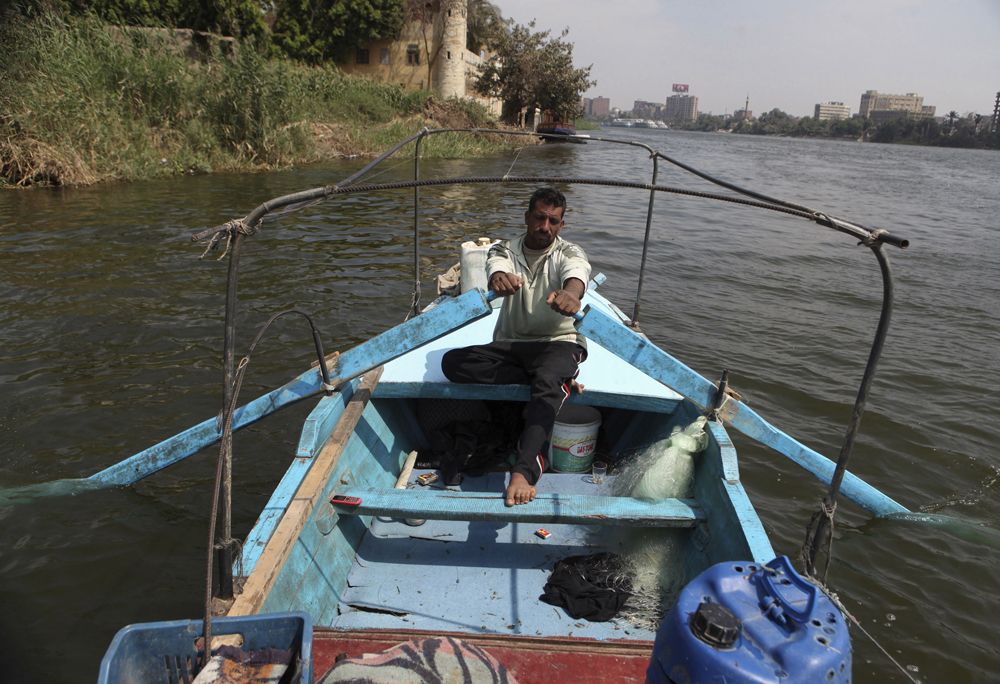
A fisherman rows his boat on the river Nile in Cairo April 13, 2013. (REUTERS/Asmaa Waguih)
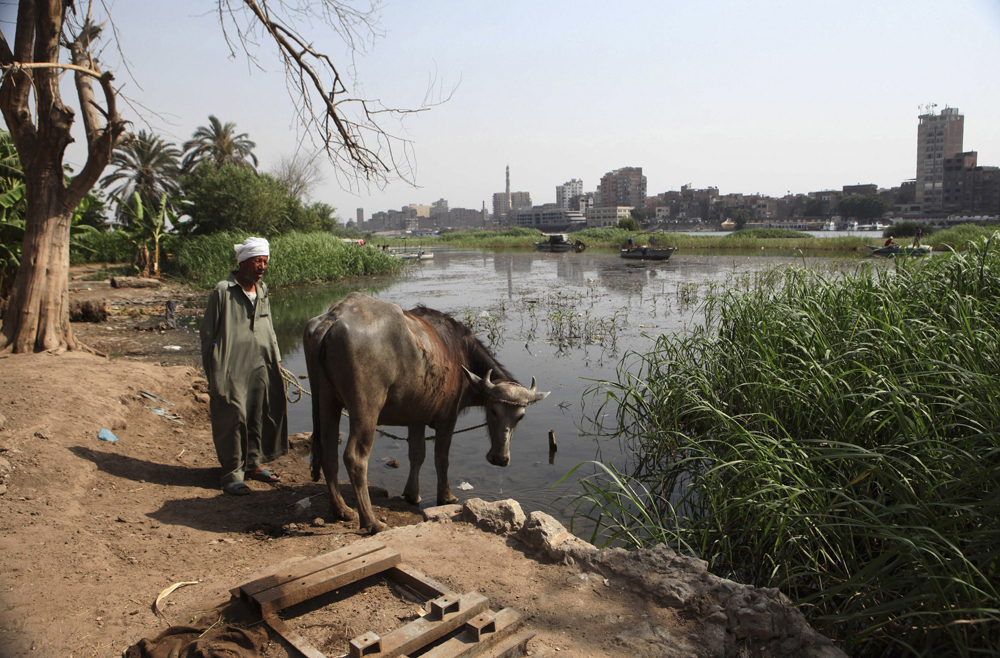
A farmer stands near his cow while it drinks from the river Nile in Cairo May 22, 2013. (REUTERS/Asmaa Waguih)
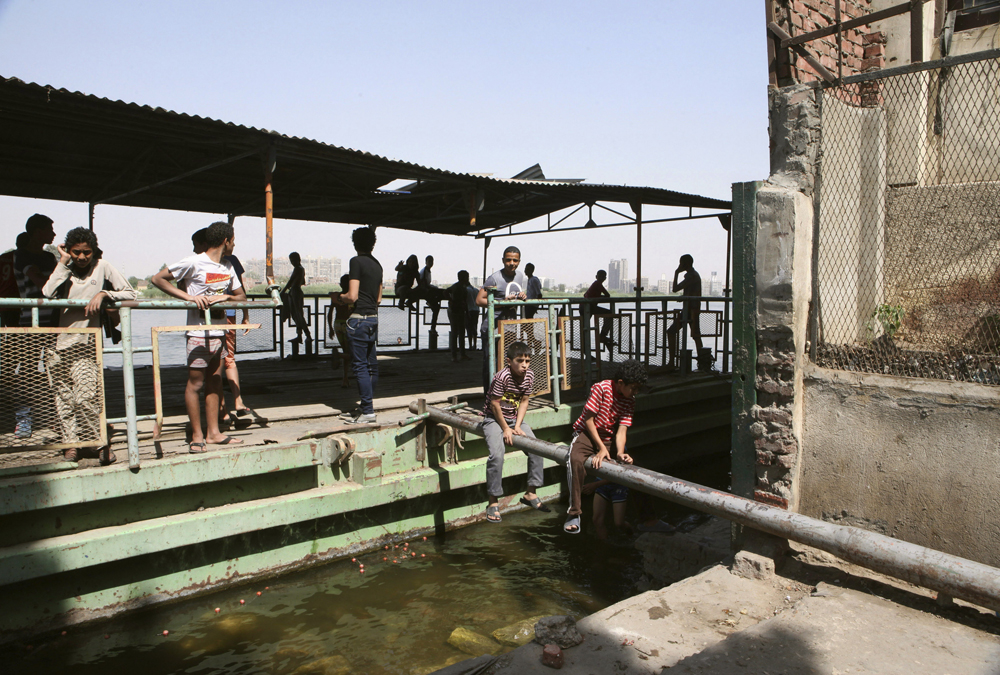
Boys play on a ferry jetty on the shore of the river Nile in Cairo May 22, 2013. (REUTERS/Asmaa Waguih)
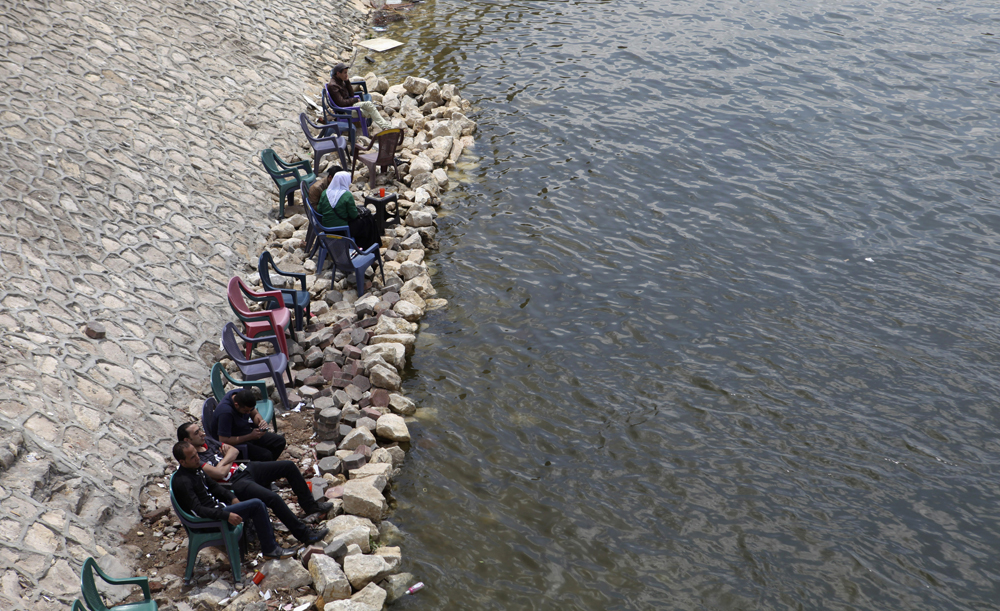
People sit on chairs set out by a cafe on the banks of the river Nile in Cairo April 21, 2013. (REUTERS/Asmaa Waguih)
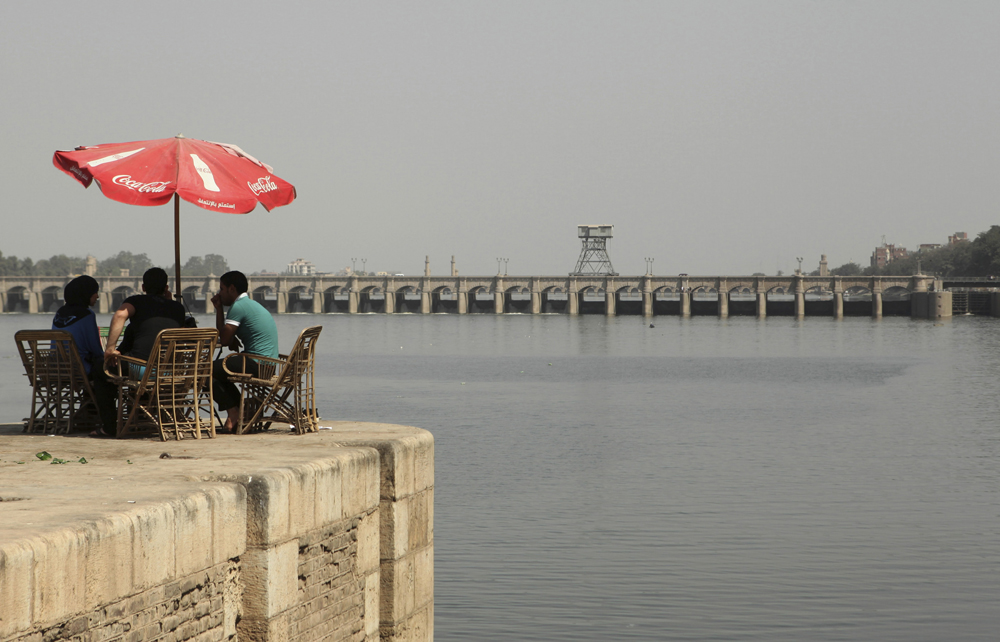
People sit in a cafe overlooking the barrages of al-Qanatir on the river Nile in Cairo May 6, 2013. (REUTERS/Asmaa Waguih)
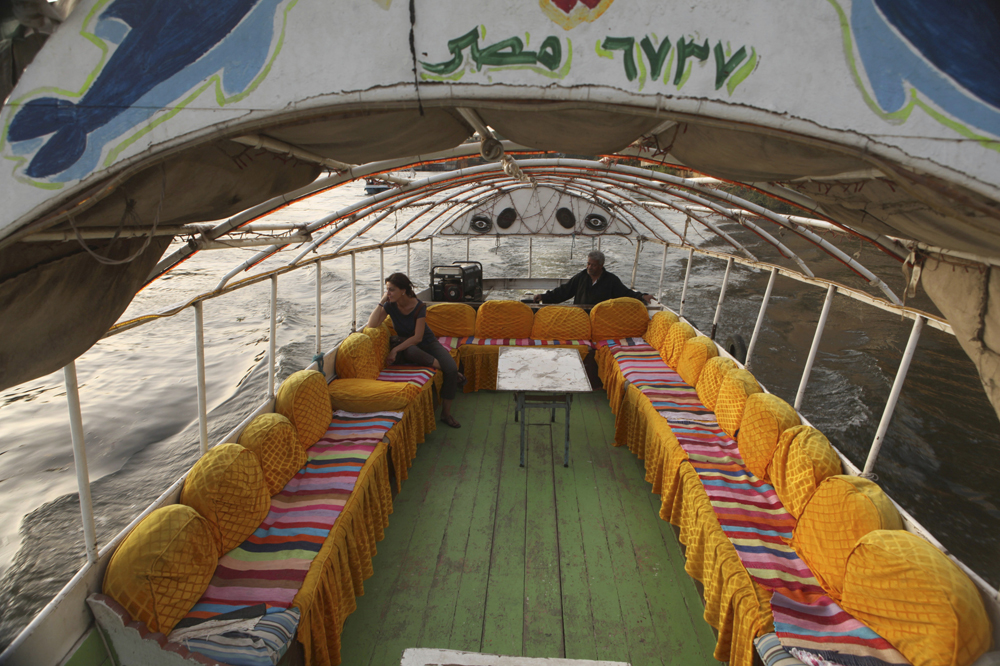
A woman looks out as she sits in a boat during a cruise on the river Nile in Cairo June 7, 2013. (REUTERS/Asmaa Waguih)
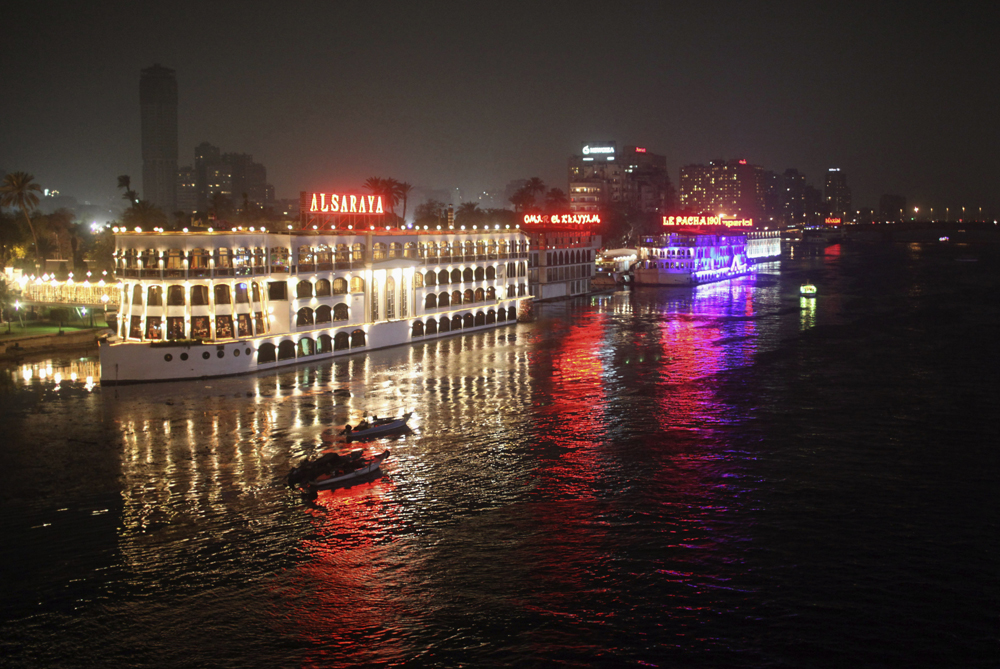
Boats housing restaurants and nightclubs float on the river Nile in Cairo May 8, 2013. (REUTERS/Asmaa Waguih)
